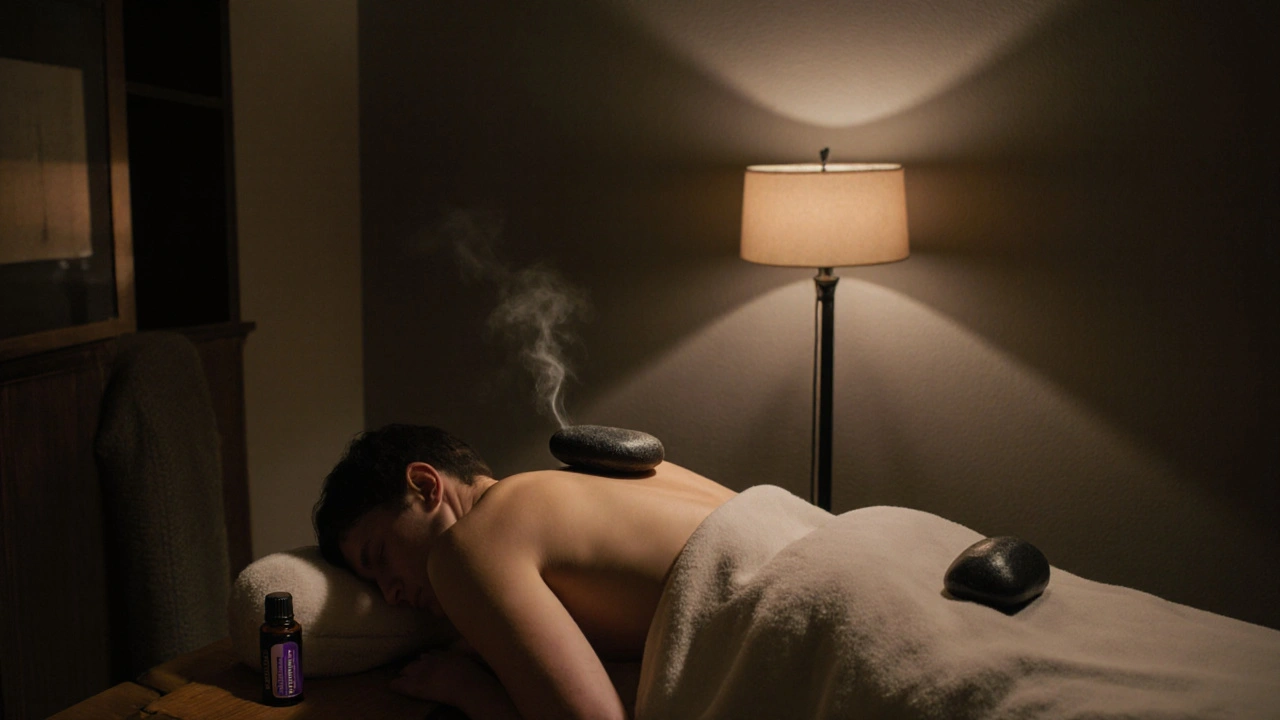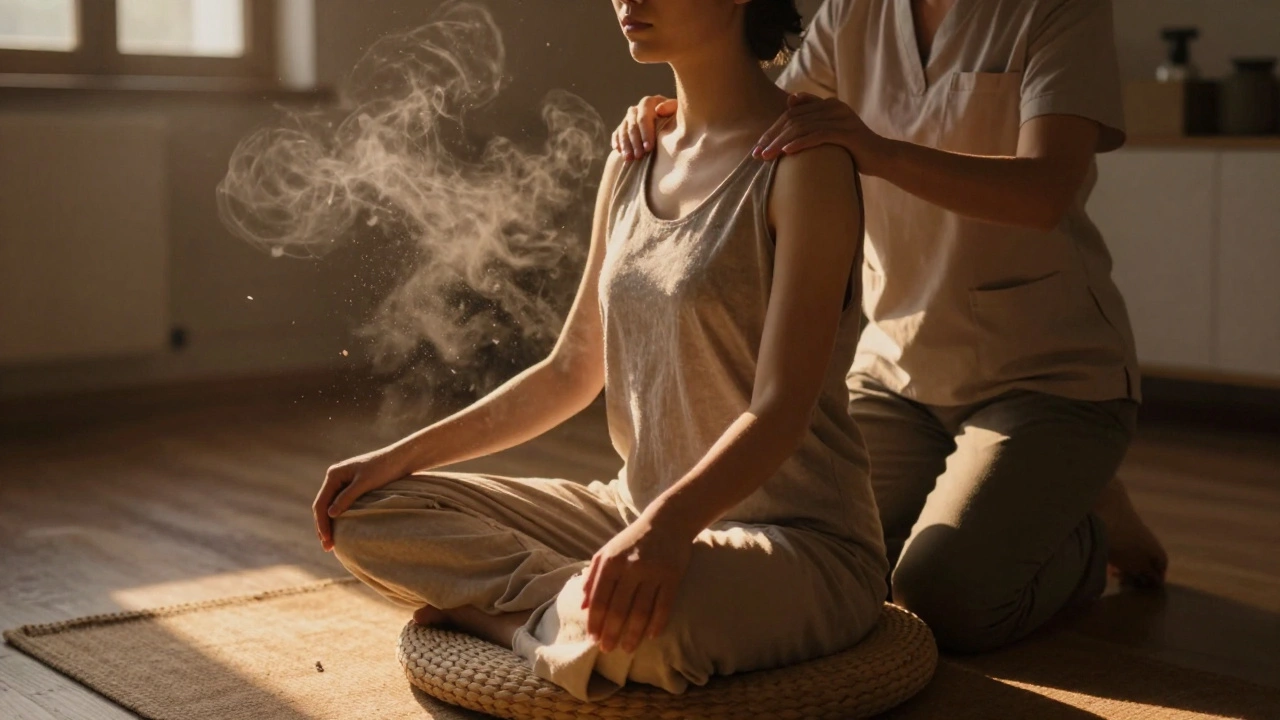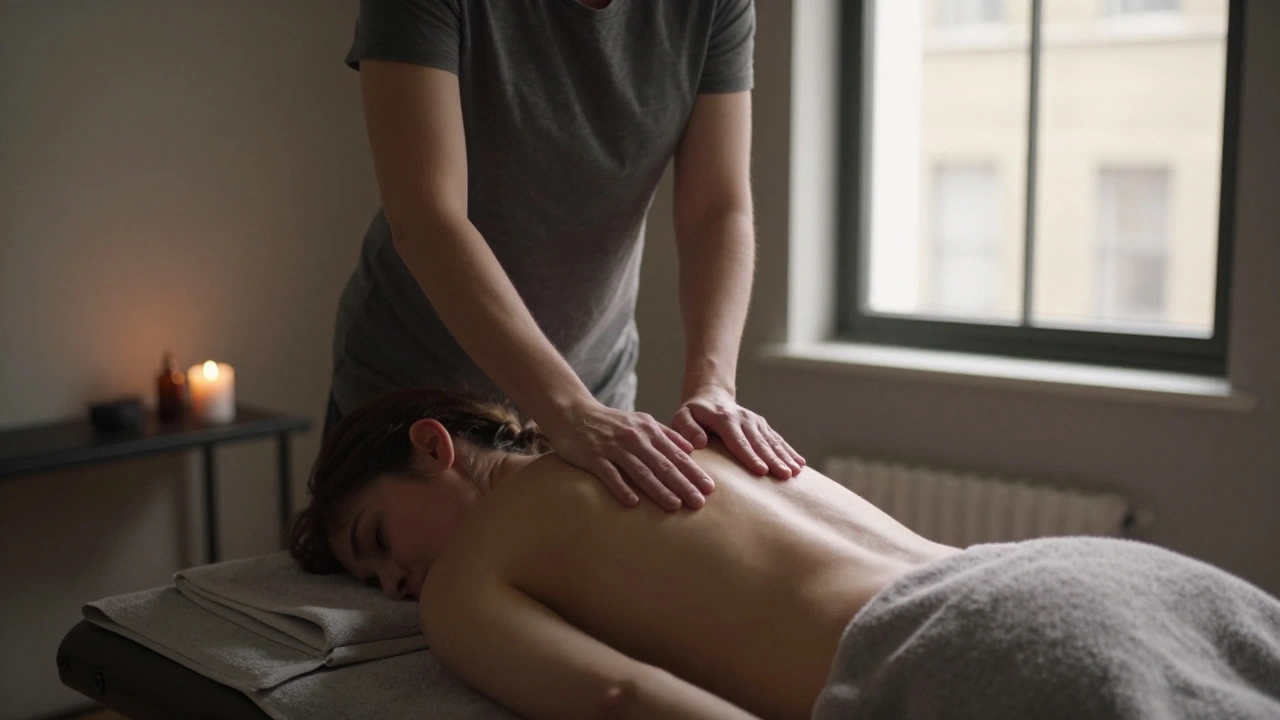Massage Therapy London: Transform Your Well-Being Fast
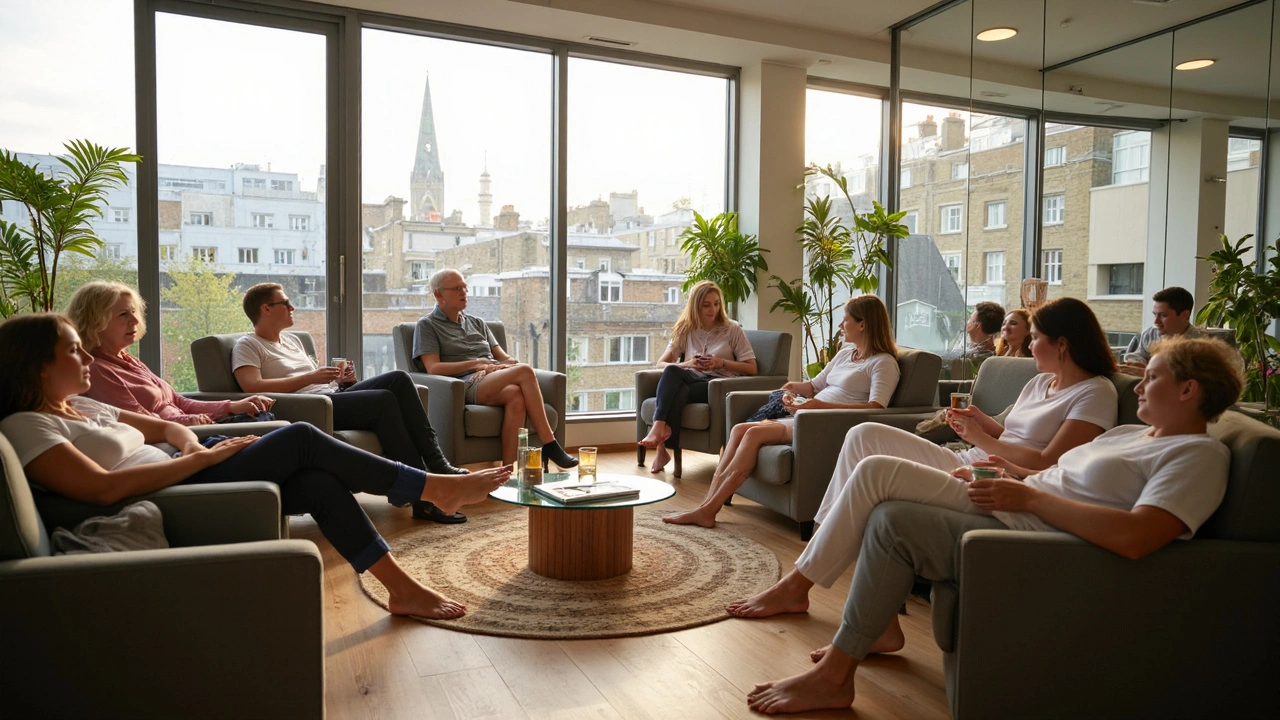
Feeling stressed out or physically stuck? You’re definitely not alone in London. The daily grind hits hard, and a lot of people walk around with aches, tension, or just that tired heaviness from staring at screens all day. That's exactly where massage therapy steps in—and no, it’s not just a fancy treat people splash out on after a rough week. It's legit science-backed self-care that can quickly flip how you feel both inside and out.
Forget any idea that massages are just about lying around getting oiled up. The right therapy can loosen stubborn knots, boost your mood, and even help your body heal. Whether you’re dealing with back pain, stiff shoulders, or even finding it tough to sleep, there’s a massage technique that can help. Plus, therapists in London have seriously upped their game—there’s way more to pick from than your standard spa menu, and it’s way more targeted now.
- How Massage Actually Works for Your Body and Mind
- Finding Trusted Massage Therapists in London
- Which Treatments Get Real Results?
- The Surprising Extras: Mental Health, Sleep, and Beyond
- Making the Most of Your Massage Experience
How Massage Actually Works for Your Body and Mind
If you think massage is just about feeling good for an hour, you’re missing out on the real story. Here’s what actually happens when a trained therapist gets to work on those sore spots: your nervous system chills out, your blood starts pumping better, and your body releases natural painkillers like endorphins. That’s why people often leave a session walking taller and feeling clearer in their heads.
On a physical level, massage targets your muscles, tendons, and fascia—the tissue that holds everything together. A good therapist doesn’t just rub skin; they use different motions to break up tension and send oxygen-rich blood right where your body needs repair. Think about that one spot in your back that always nags you after a long day. Massage helps loosen it up by literally moving out junk trapped in the tissue and letting in the good stuff again. It’s not magic; it’s biology.
There’s solid research out there backing all this up. A big review done by the British Medical Journal in 2020 found massage really does help lower anxiety. Other studies have shown it can cut down on lower back pain and even help people manage headaches. Some hospitals in London offer massage therapy as part of pain management plans, so it’s not just a feel-good add-on.
And it’s not just your body that benefits. If you’re stressed, your cortisol levels shoot up. Massage has been shown to lower that stress hormone, helping your mind slow down too. People sometimes compare post-massage calm to meditation—your heart rate drops, your breathing smooths out, and you just feel more present in your own skin.
So next time someone says massage therapy London is just a luxury, you know better. It’s your nervous system, your muscles, and your mind all getting a tune-up at once.
Which Treatments Get Real Results?
Here’s the deal: not every massage is the same, and not every treatment delivers what you’re after. If you want results that stick—like actually relaxing, easing pain, or moving better—you’ve got to match the massage style to your needs. In London, you’ll find a dizzying menu, but a few tried-and-tested options top the list for real impact.
- Sports Massage: This isn’t just for athletes. Sports massage uses deep pressure and targeted work on muscles and joints that get overused (think office shoulders, weekend joggers). It’s great for speeding up recovery, relieving tension, and even stopping injuries before they start.
- Swedish Massage: The classic for a reason. If your main goal is to melt stress, improve circulation, and just reset after a brutal week, this one’s hard to beat. Techniques here use lighter strokes, making it perfect for first-timers or anyone feeling burnt out.
- Deep Tissue Massage: Got stubborn knots? Deep tissue goes after those trouble spots and can break up old muscle tension. This one dives deeper into layers of muscle than Swedish, so it might be a bit sore after, but tons of people swear by it for lasting relief.
- Trigger Point Therapy: That stabbing pain between your shoulders? Trigger point therapy targets those exact pinched spots. Therapists apply steady pressure on a ‘trigger point’—sometimes life-changing if you sit at a desk all day.
- Thai Massage: Skip the oil, keep your clothes on. Thai massage mixes stretching and pressure and feels a bit like assisted yoga. It’s brilliant for flexibility and boosting your energy if the usual lying-down approach sends you to sleep.
Still not sure which is right for you? Check out what people actually say after their sessions. If you dig into reviews across London, the highest-rated clinics usually stick to these top treatments for good reason. Here’s a quick snapshot from current London massage therapy data:
| Massage Type | Most Common Benefit Reported | Average Session Length (minutes) | Typical Price Range (£) |
|---|---|---|---|
| Sports Massage | Pain relief, faster recovery | 60 | 55-90 |
| Swedish Massage | Stress reduction, relaxation | 60 | 50-85 |
| Deep Tissue Massage | Muscle tension relief | 60 | 60-95 |
| Trigger Point Therapy | Spot pain relief | 45 | 50-80 |
| Thai Massage | Flexibility, energy boost | 60 | 55-85 |
Most therapists in London will talk you through options, so don’t be shy about what you need. Be open about how you feel, any old injuries, or if you just want to actually relax for once. The right match will leave you wondering what took you so long to try it.
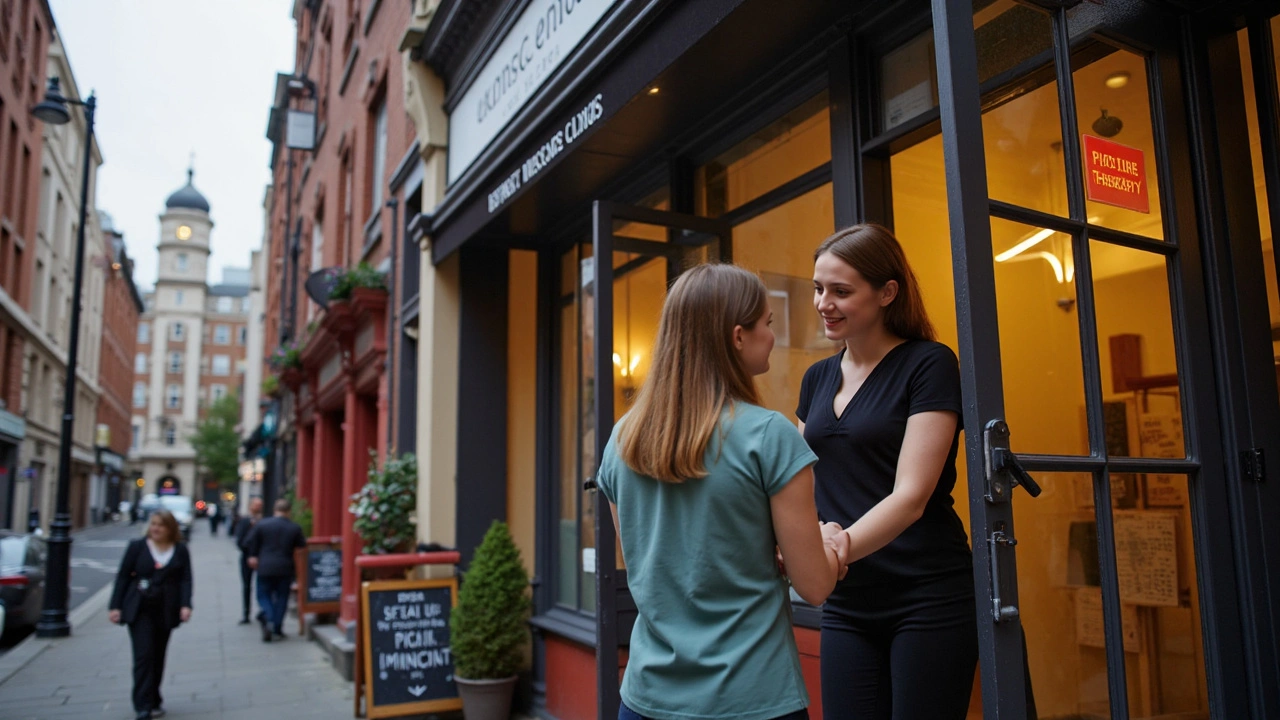
The Surprising Extras: Mental Health, Sleep, and Beyond
Massage therapy doesn’t just relax your muscles; it can reset your whole system. People who get regular massages in London often notice unexpected perks—calmer moods, deeper sleep, and sharper focus. The science backs this up, too.
Let's break down what really happens when you get a massage. Your body lowers its stress hormone, cortisol, and ramps up those feel-good chemicals, serotonin and dopamine. That’s why anxiety melts away for a while, and you walk out feeling lighter. It’s not hype—some clinics even track this with client feedback and mood check-ins.
Ever notice how your sleep gets choppy after tough days? Here’s some good news: a solid massage can boost melatonin production and help your body transition faster into deep, restful sleep. Studies from sleep clinics in the UK found that after a series of massage sessions, people reported falling asleep quicker and waking up less at night. This isn’t just for hardcore insomniacs—if you want to wake up with less grogginess, it can really help.
| Benefit | Reported Improvement (by % of clients) |
|---|---|
| Less Stress & Anxiety | 80% |
| Better Night’s Sleep | 64% |
| Boost in Mood & Focus | 60% |
| Less Headache & Tension | 58% |
If you’re struggling with things like anxiety, tightness in your chest, or even random headaches, adding massage therapy London to your self-care list could make a real difference. It’s not a miracle fix, but it is a practical tool that fits in with stuff you’re already doing—like yoga, meditation, even just trying to get outside more. A lot of people book massages after big exams, stressful work stretches, or when they can’t shake that wired-and-tired feeling.
Pro tip: tell your therapist if you’re having sleep issues or feeling anxious. Some use slower strokes or throw in breathing exercises to make the session even more effective for mental reset or better rest.
Making the Most of Your Massage Experience
Getting the best out of massage therapy London is all about preparation and mindset. Most people walk in thinking it’s just a chill-out hour, but there’s actually stuff you can do before, during, and after to make your session way more effective. Even small tweaks can mean less soreness and longer-lasting results.
Let’s break down what actually helps. Block out time before your appointment to avoid rushing—arriving flustered can keep you tense during your session. Ideally, show up 10-15 minutes early so you can fill out forms, go to the loo, and actually relax. Skip a heavy meal right before, but don’t go completely hungry either; low blood sugar can make you feel faint.
During the massage, don’t just zone out. Talk to your therapist about pain levels and what feels good or awkward. That way, you’ll avoid leaving with new aches or sore spots. Communication is huge. Therapists want feedback and won’t be offended—if anything, they’ll fine-tune their technique for you.
- Be honest about any injuries or recent illnesses.
- If you need more or less pressure, say so early.
- Switch off your phone or put it on silent mode.
- Set an intention—do you want relaxation, pain relief, or a bit of both?
Right afterwards, take a few minutes in the waiting area before running off. Chug some water—a lot of massage pros say it helps flush out metabolic waste stirred up during muscle work. Don’t book back-to-back meetings straight after, if you can avoid it.
People always ask about aftercare. It’s simple:
- Drink extra water for the rest of the day.
- If you feel achy, try a warm bath.
- Light movement (stretching, walking) keeps you loose.
Here’s some real numbers. One London clinic reported 74% of regular clients noticed less muscle tension and better sleep after just three sessions. A 2023 UK survey showed 60% of massage-goers felt a drop in anxiety or low mood for at least a few days after their appointment.
| Aftercare Step | Why It Works |
|---|---|
| Hydrate | Helps flush out toxins/metabolic waste released from muscles |
| Stretch | Keeps mobility gains after a session |
| Rest | Prevents fatigue and gives your body time to recover |
If you want consistent results, book ahead—monthly or biweekly sessions beat once-in-a-blue-moon visits, especially for chronic issues. Some therapists in London even offer package deals that make it easier on the wallet, so don’t be shy about asking. Commit to the process, listen to your body, and you’ll get way more out of every single session.

